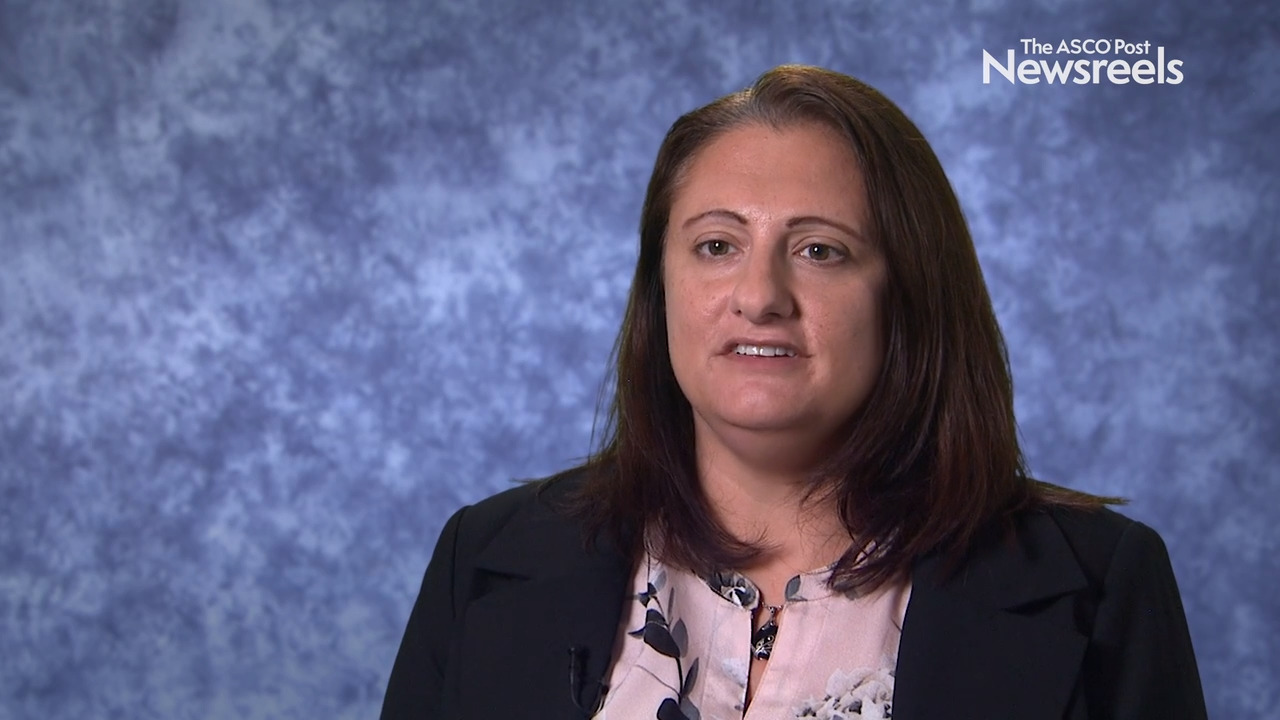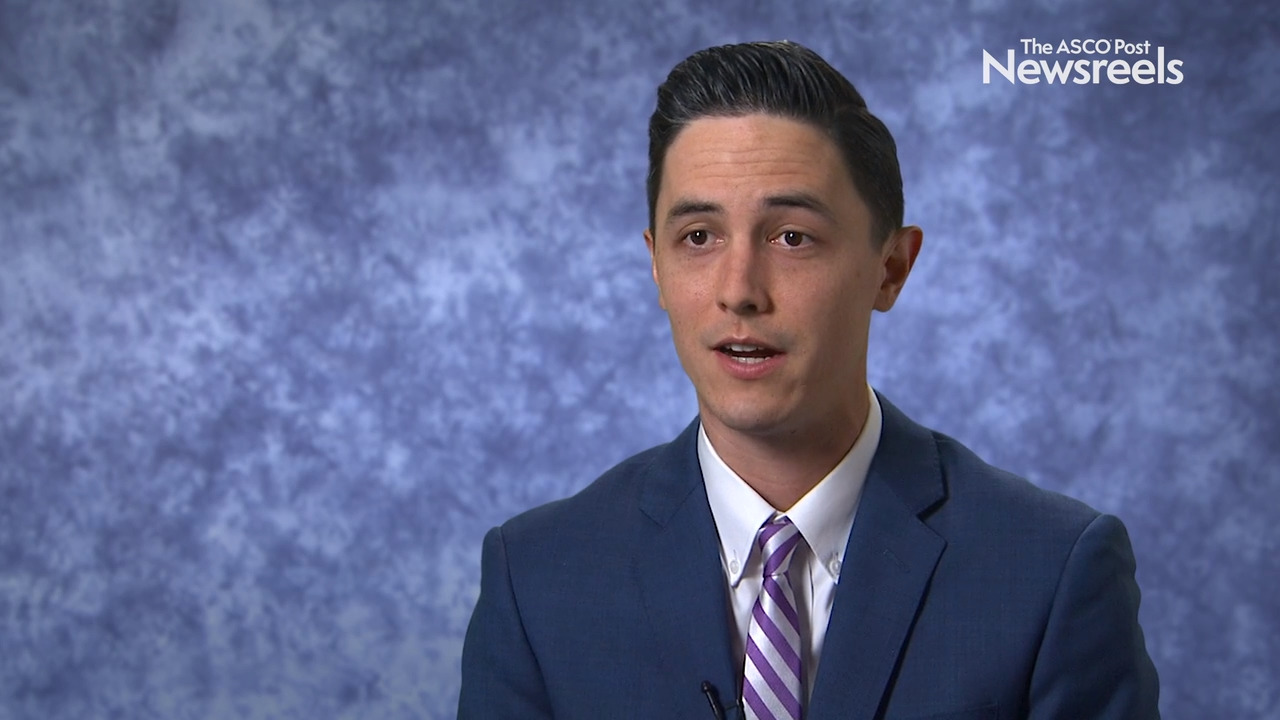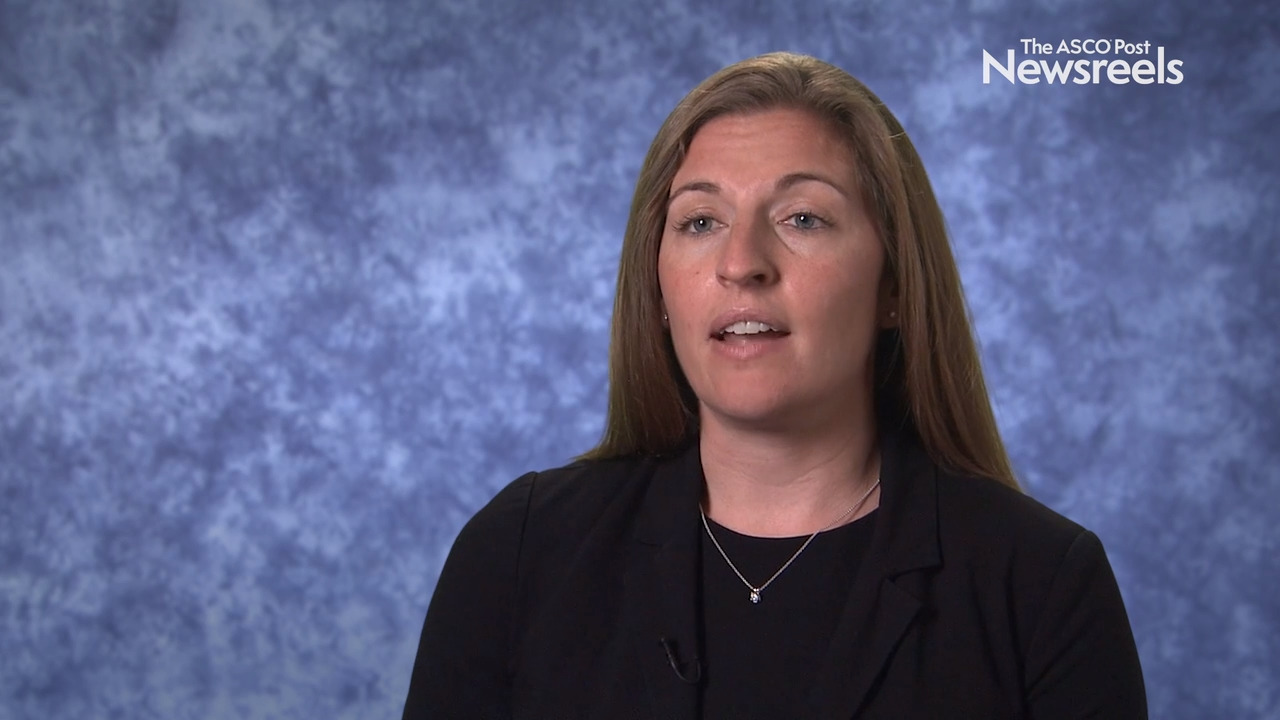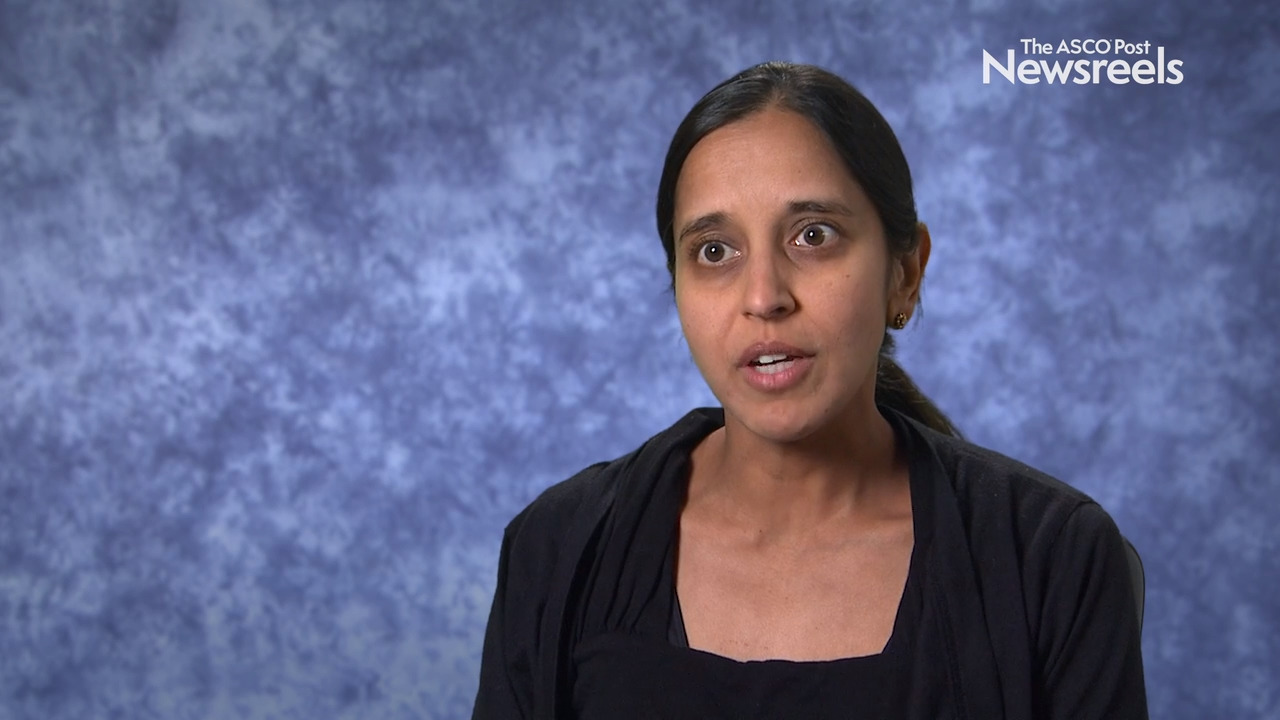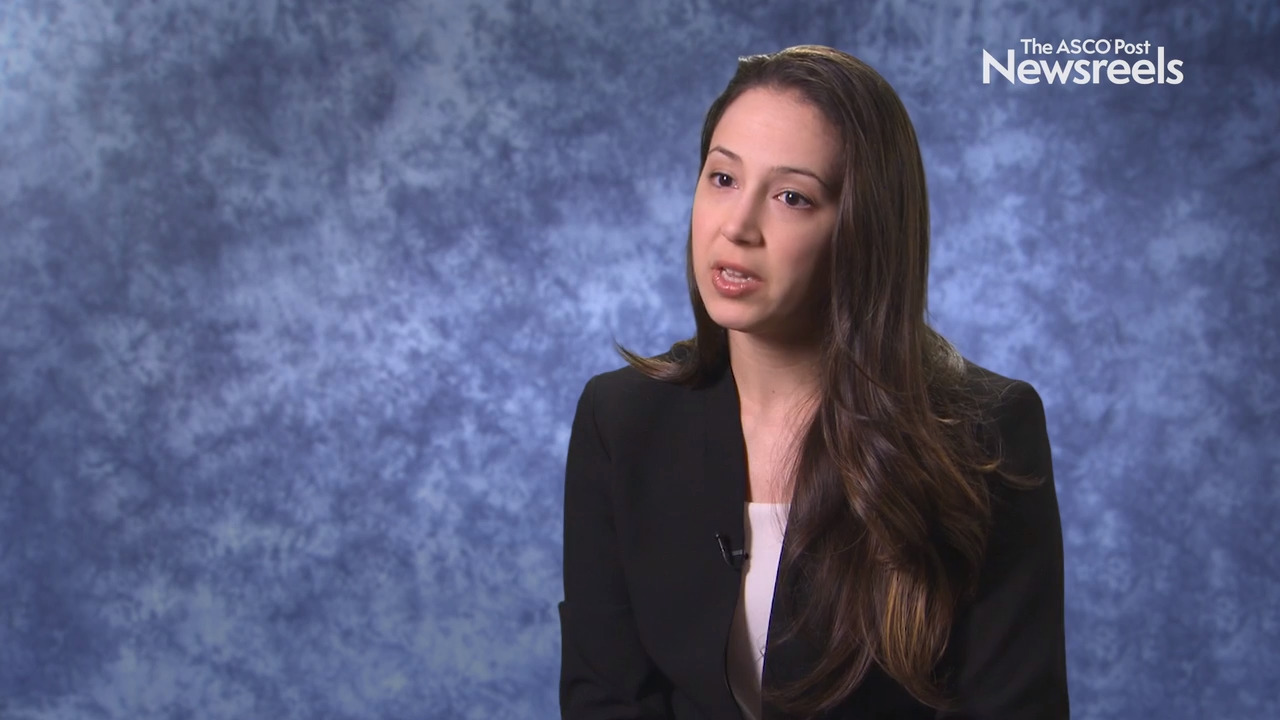Karen M. Winkfield, MD, PhD, on Policy and Business Solutions to Address Disparities in Cancer Care
2019 Quality Care Symposium
Karen M. Winkfield, MD, PhD, of the Wake Forest Baptist Medical Center, discusses cultural factors that contribute to cancer care disparities, the role of national policy in addressing inequities in access to care, and what local institutions can do to improve the situation.
Angela M. Stover, PhD, of the University of North Carolina at Chapel Hill, discusses ASCO’s initiative to develop patient-based performance measures for assessing and managing symptoms. The measures have made substantial differences in reducing nausea, constipation, and insomnia (Abstract 173).
Ryan Huey, MD, of The University of Texas MD Anderson Cancer Center, discusses his findings that showed the large financial burden on lower-income patients enrolled in phase I trials (Abstract 8).
Lauren M. Hamel, PhD, of Wayne State University/Karmanos Cancer Institute, discusses her findings on the ways in which nonverbal behavior between doctors and patients of the same or different races can affect their relationship, quality of communication, and ultimately, perhaps outcomes as well (Abstract 169).
Manali I. Patel, MD, of Stanford Cancer Center, discusses enhancing value for patients with cancer treated by community practitioners at the end of life by also utilizing trained lay health workers in a novel intervention that reduced the use of acute care and emergency department visits while improving quality of life.
Cristina Merkhofer, MD, MHS, of Fred Hutchinson Cancer Research Center, discusses study results showing that for patients with metastatic non–small cell lung cancer at her institution, enrolling in a therapeutic drug clinical trial was associated with a 47% lower risk of death, compared with not taking part in a trial (Abstract 137).
